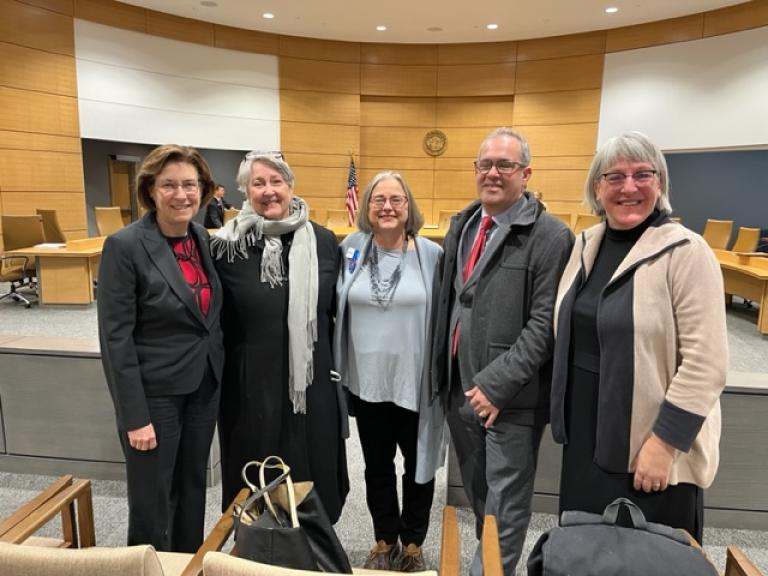News
Gunnar presents to Minnesota Senate joint hearing on early childhood issues

Megan Gunnar, PhD, Regents Professor and Distinguished McKnight University Professor at the Institute of Child Development, recently testified to a joint Minnesota Senate hearing on early childhood issues. State Senator Melissa Wiklund, who chairs the Senate Health and Human Services Committee, convened a joint hearing on Feb. 2 with the Senate Education Finance Committee on the topic of making strategic investments in the early years of life. Professor Gunnar spoke on the importance of early experiences for healthy brain development.
“A brain that is well put together supports the development of those higher regions that help us later,” Gunnar said at the hearing. “Those early years are very critically important for laying the foundation [for all that is to come].”
Gunnar, who is a member of the Governor’s Advisory Council to the Minnesota’s Children’s Cabinet, shared studies that showed by 36 months you can see the achievement gap in the number of different words children use and in the gray matter volume of the brain. The differences in language reflect the richness of the language and conversations the child has been a part of in their first years of life.
“The barriers to early educational achievement are beginning very, very early,” Gunnar said. “We cannot wait until children are 4 years.”
The committee members also heard from Aaron Sojourner, a labor economist at the W.E. Upjohn Institute for Employment Research, who is also on the Governor’s Advisory Council. He presented the economic argument for supporting families and children during the earliest years of a child’s life. Ann McCully and Nancy Jost, co-facilitators of Transforming Minnesota’s Early Childhood Workforce Team, and Jamie Bonczyk, program officer for 80×3: Resilient from the Start at Greater Twin Cities United Way, testified to the severe challenges faced by the early education workforce.
The committee members also heard an update from the Great Start for All Minnesota Children Task Force, which recently released a report giving recommendations on how the state can:
- Create a system in which family costs for early care and education are affordable;
- Ensure that a child’s access to high-quality early care and education is not determined by the child’s race, family income, or zip code;
- Ensure that Minnesota’s early childhood educators are qualified, diverse, supported, and equitably compensated regardless of setting.
To watch the full joint Senate hearing, click here.